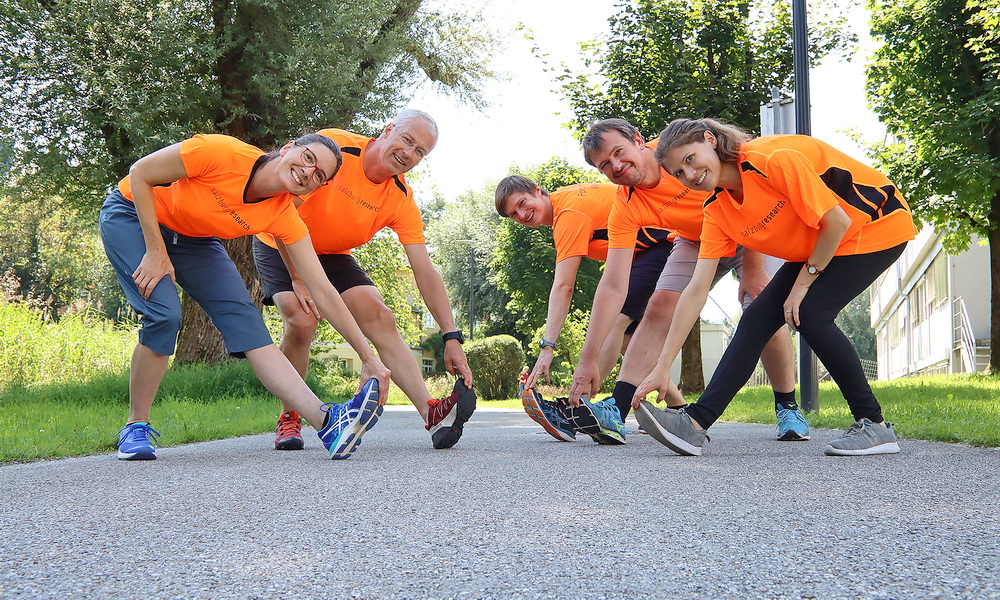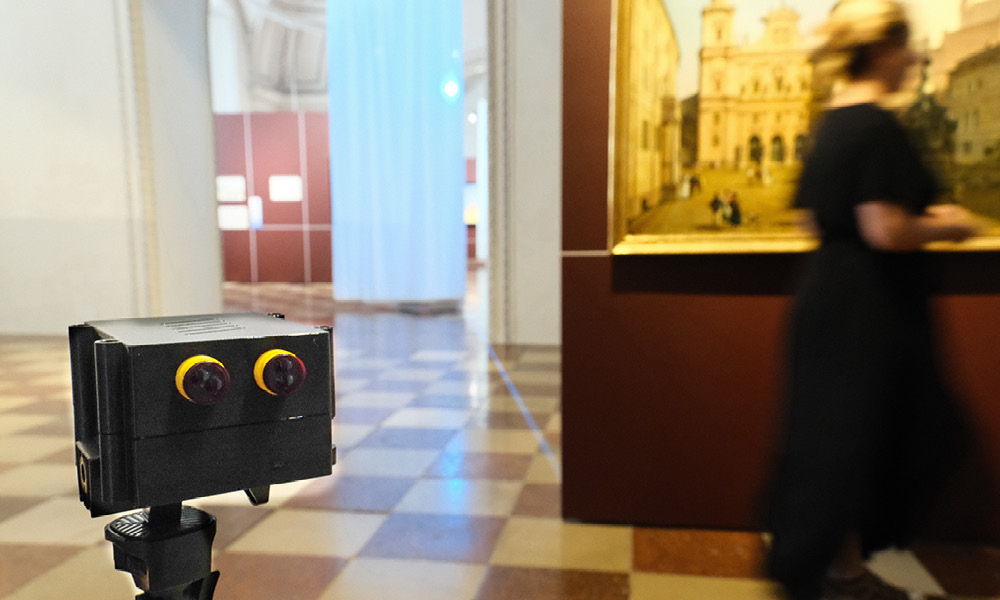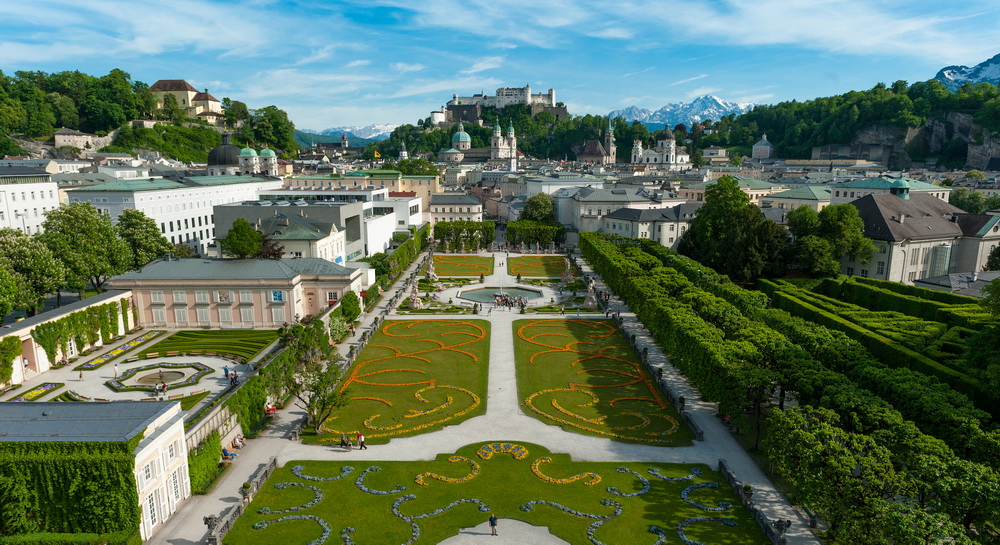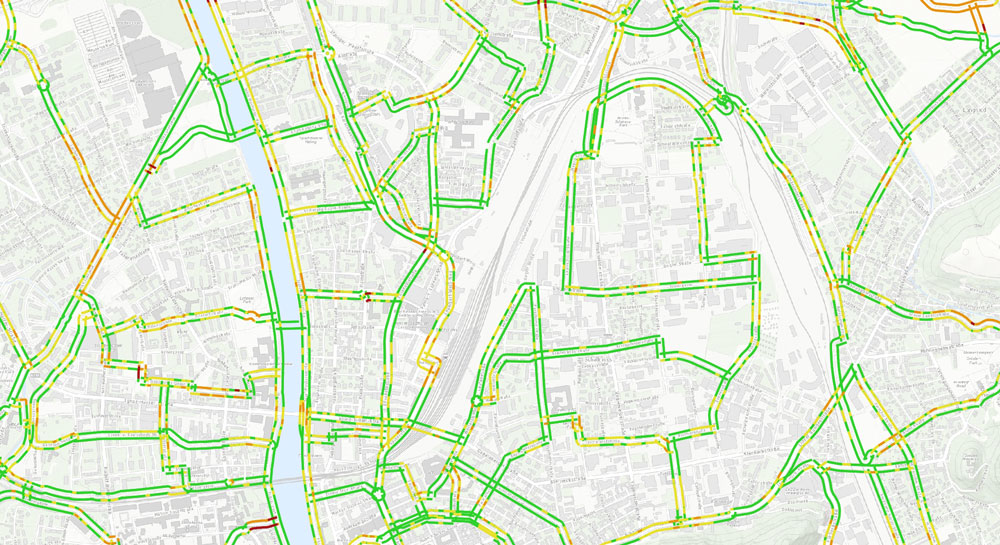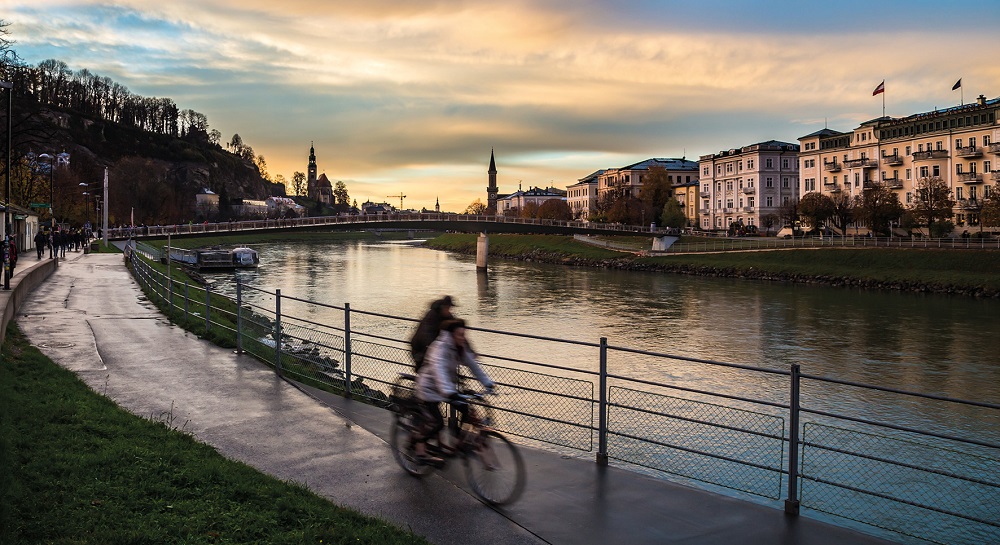
Bike Quality: Bicycle Infrastructure Under The Microscope
For environmental protection and sustainability, the bicycle is the best means of transport for short to medium distances. In order to increase the bicycle traffic share and to contribute to the achievement of climate goals, targeted measures for the expansion and improvement of the existing bicycle infrastructure are required. With “Bike Quality”, Salzburg Research uses digital technologies to identify the areas with the greatest need for action in the Salzburg cycle path network. 
Salzburg is already the frontrunner in Austria compared to 20 percent of cyclists. An increase to 24 percent would mean a reduction of nine tons of CO2 per day and would help to further chive the climate goals. The following applies: the better and safer the bicycle infrastructure, the more often it is used. The “Bike Quality” app developed by Salzburg Research uses a smartphone attached to the handlebar to absorb and store vibrations and shocks while driving. In addition to the surface quality, speed and typical stops including the respective holding time are also identified. Since May, several test subjects equipped with the app have been cycling a total of 3,000 kilometers on bike paths in the city on behalf of the City of Salzburg. The data is then referenced using the digital street graph (Graph Integration Platform – GIP). This digital measurement of the bike infrastructure thus leads to a unique database for research and traffic planning in the city of Salzburg and provides a basis for future planning and targeted improvement of the quality of the bike infrastructure.
The “Bike Quality” app was developed by Salzburg Research on behalf of the uml salzburg (urban mobility laboratory salzburg). This quality measurement of the bicycle infrastructure can be offered to other cities and communities in Austria if interested.


